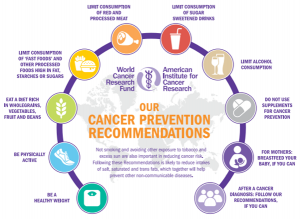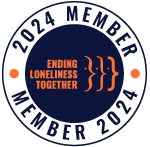Know the facts
The word cancer is a term assigned to a collection of related diseases where abnormal cells divide uncontrollably and spread to other tissues (National Cancer Institute, 2018).
Unfortunately, Australia leads overall cancer incidence (new cases diagnosed) for all cancers combined when compared to the worldwide incidence and other individual countries; our age-standardised risk is 495 per 100,000 for males and 405 per 100,000 for females compared to worldwide incidence of 222 per 100,000 for males and 186 per 100,000 for females (Sung et al., 2021). These numbers equate to ~413 new cases each day in Australia (AIHW, 2021).
Cancer remains the leading cause of death in Australia, accounting for 30% of our disease burden or 135 deaths each day (ABS, 2021). Included below are the leading cancers for new cases and deaths:
Table 1. Cancer in Australia (AIHW, 2021)
| Incidence / new cases | Mortality / deaths | ||
| Males | Females | Combined | |
| 1st | Prostate | Breast | Lung |
| 2nd | Melanoma | Colorectal | Colorectal |
| 3rd | Colorectal | Melanoma | Pancreatic |
| 4th | Lung | Lung | Prostate |
| 5th | Breast | ||
Whoa! With all this bad news, is there anything we can do to reduce our risk of cancer?
Yes! The AIHW have reported 42% (almost half!) of Australia’s cancer burden is attributable to modifiable risk factors including smoking, overweight status and sun or UV exposure (AIHW, 2021).
Given these statistics, and in lieu of World Cancer Day, it’s timely to share the current World Cancer Research Fund (WCRF) guidelines with the UQ Healthy Living community. THE WCRF is recognised as the leading global institution regarding cancer prevention research. They have an ongoing program called the Continuous Update Project (better known as CUP), which involves analyses of global research evidence of diet, nutrition and physical activity and the impact of these on cancer risk and survival.
As we reflect on World Cancer Day, and those we love whom it has affected, UQHL would like to encourage you to speak to our clinicians about these recommendations and consider addressing one or more of your modifiable risk factors.
The full report is available using this link: https://www.wcrf.org/wp-content/uploads/2021/01/Recommendations.pdf.
Introducing CARE
UQ Healthy Living will be launching our own cancer clinic (CARE – ‘Cancer Recovery’) this year. The CARE Program is an individually prescribed exercise program for people with a current or former diagnosis of cancer. The program will entail a pre and post program individualised assessment, twice weekly exercise sessions for 10 weeks, and four education sessions facilitated by clinicians with expertise in Exercise Physiology, Physiotherapy and Psychology.
To express your interest please email uqhealthyliving@uqhealthcare.org.au or call 07 3443 2586.
Figure 1. Cancer Prevention Recommendations (World Cancer Research Fund / American Institute for Cancer Research, 2018)

References
Australian Bureau of Statistics (2021). Causes of Death, Australia, 2020 (Catalogue No 3303.0). https://www.abs.gov.au/statistics/health/causes-death/causes-death-australia/latest-release. Accessed 21st January 2022.
Australian Institute of Health and Welfare. (2021, December 1). Cancer in Australia 2021. Cat no. CAN 144. Canberra: AIHW. https://www.aihw.gov.au/reports-data/health-conditions-disability-deaths/cancer/overview. Accessed 25th January 2022.
National Cancer Institute (2018). NCI Dictionary of Cancer Terms. Retrieved 2021 from https://www.cancer.gov/publications/dictionaries/cancer-terms. Accessed 21st January 2022.
Sung, H., Ferlay, J., Siegel, R. L., Laversanne, M., Soerjomataram, I., Jemal, A., & Bray, F. (2021). Global Cancer Statistics 2020: GLOBOCAN Estimates of Incidence and Mortality Worldwide for 36 Cancers in 185 Countries, CA: A Cancer Journal of Clinicians, 71(3), 209 –249. https://doi.org/10.3322/caac.21660
World Cancer Research Fund / American Institute for Cancer Research. (2018). Diet, Nutrition, Physical Activity and Cancer: a Global Perspective. http://dietandcancerreport.org. Accessed 25th January 2022.


